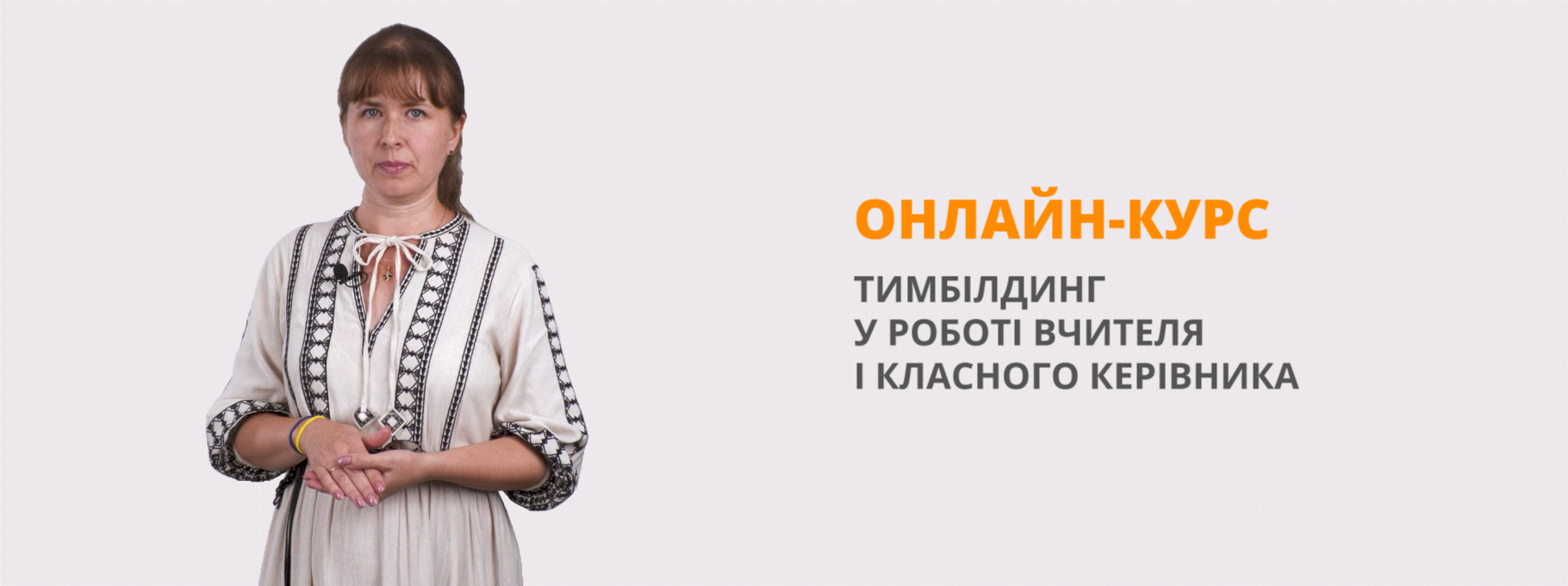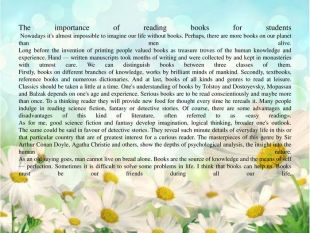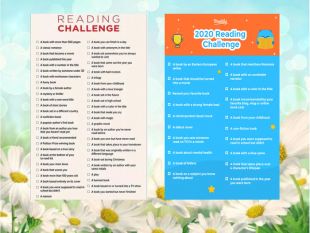Презентація за темою: "The importance of reading books for students" з дисципліни "Іноземна мова (за професійним спрямуванням)"
Про матеріал
Презентація за темою: "The importance of reading books for students" з дисципліни "Іноземна мова (за професійним спрямуванням)" студентів І - ІІІ курсів закладів передвищої освіти. Підготувала: Павлова Г.В., викладач ДонДКТУ м. Торецька Перегляд файлу
Зміст слайдів
pptx
До підручника
Англійська мова (10-й рік навчання, рівень стандарту) 11 клас (Карпюк О.Д.)
Оцінка розробки


Безкоштовний сертифікат
про публікацію авторської розробки
про публікацію авторської розробки
Щоб отримати, додайте розробку
Додати розробку




![Vocabulary tale [teɪl] розповідь, повість fairy-tale ['feərɪteɪl] — казка fable [feɪbl] — байка adventurous [əd'ventʃ(ə)rəs] — пригодницький thrilling ['θriliŋ] — хвилюючий, захопливий fascinating ['fæsɪneɪtɪŋ] — чарівний; принадний amusing [ə'mju:zɪŋ] — забавний, цікавий to taste [teɪst] — пробувати на смак; куштувати to swallow ['swɔləu] — ковтати, проковтувати to chew [lʃu:] — пережовувати to digest [dɪ'dʒest] — засвоювати, сприймати to dip into — занурюватися; поверхово, неуважно переглядати Vocabulary tale [teɪl] розповідь, повість fairy-tale ['feərɪteɪl] — казка fable [feɪbl] — байка adventurous [əd'ventʃ(ə)rəs] — пригодницький thrilling ['θriliŋ] — хвилюючий, захопливий fascinating ['fæsɪneɪtɪŋ] — чарівний; принадний amusing [ə'mju:zɪŋ] — забавний, цікавий to taste [teɪst] — пробувати на смак; куштувати to swallow ['swɔləu] — ковтати, проковтувати to chew [lʃu:] — пережовувати to digest [dɪ'dʒest] — засвоювати, сприймати to dip into — занурюватися; поверхово, неуважно переглядати](/uploads/files/755257/192056/207578_images/4.jpg)

















